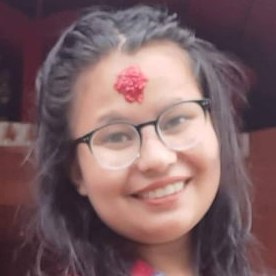Health
Sickle cell patients in Surkhet battle disease and poverty
Long and costly trips to Nepalgunj and soaring medical bills are taking a heavy toll on families.
Tripti Shahi
Every month, 43-year-old Prem Bahadur Chaudhary from ward 10 of Birendranagar Municipality, Surkhet, makes a tiring journey to Nepalgunj in Lumbini province just to buy the medicines that keep him alive. A patient of sickle cell anaemia since 2016, Prem says he has never found consistent access to treatment in Birendranagar, the provincial capital of Karnali.
“There are hospitals everywhere in Birendranagar, but none provide the medicines I need,” Prem complained. “Since my diagnosis, I’ve been travelling to Nepalgunj for checkups and medicines. The travel and lodging cost more than the medicines themselves.”
The problem is not his alone. All patients diagnosed with sickle cell anaemia in Surkhet must travel to Bheri Hospital in Nepalgunj—the only major public facility in western Nepal that provides comprehensive treatment for the disease. The monthly health checkups are mandatory for patients, but the financial and physical strain of travelling is punishing.
“The medicines cost about Rs2,000 a month, but we spend over Rs5,000 just to reach Nepalgunj for consultations, buy medicines and manage travel and other expenses,” said Bimala Chaudhary, another patient from Birendranagar. “We lose two days travelling, and sometimes we face dismissive attitudes in hospitals there. If medicines were available here, we could save money and our dignity.”
Locals say the lack of treatment facilities in Karnali exposes deep inequities in the province’s health system. “Patients are not only battling the disease—they are also carrying a mental and financial burden,” said Prem, calling on provincial authorities to ensure that the Karnali Provincial Hospital provides both treatment and medicines.
According to Dila Bahadur Chaudhary, chair of the Sickle Cell Community Hospital and Research Centre in Surkhet, the problem reflects the government’s neglect of a disease that disproportionately affects the Tharu community. “Sickle cell anaemia is slowly affecting generations of Tharus, but the authorities continue to treat it as a minor issue,” he said. “If the government ensures diagnosis cards and subsidised medicine in Surkhet, it would greatly relieve the poor Tharu families.”
For many families, the cost is unbearable. Ram Krishna Tharu, a resident of Kalimati in ward 9 of Birendranagar Municipality, said his entire family suffers from sickle cell anaemia. “We have to travel to Nepalgunj again and again,” he said. “I’ve already sold a piece of land to cover medical expenses.”
Although once believed to be confined to the Tharu population in the Tarai, cases have spread to Tharu families settled in Surkhet and other hill districts of Karnali. “In our latest survey, we found a sharp rise in infections in Surkhet,” said Dr Surendra Chaudhary, a researcher on sickle cell anaemia.
According to Chaudhary, tests conducted in 2023 found 70 positive cases among 737 people screened in Surkhet. Another survey in 2024 found 18 infections among 201 individuals. “If we expand testing, we will definitely find more cases,” he said.
As per the 2021 National Census, Surkhet has a Tharu population of around 9,000, but only a small portion has been tested. Local leaders say inadequate screening has left many undiagnosed.
Public Health Inspector Kiran Sharma at the Karnali Province Health Directorate said the provincial government has allocated Rs10 million this fiscal year to treat 12 complex diseases, including sickle cell anaemia. “We plan to use the budget to support patients of sickle cell anaemia,” he said.
This hereditary condition, in which a patient’s red blood cells become stiff and abnormally ‘sickle or crescent-shaped’, is a major health threat for Tharus living in the southern plains.
A person with sickle cell disease can live a long life with timely diagnosis, regular checkups, and the adoption of a healthy way of life. But if ignored, the condition can be fatal.




 17.12°C Kathmandu
17.12°C Kathmandu














